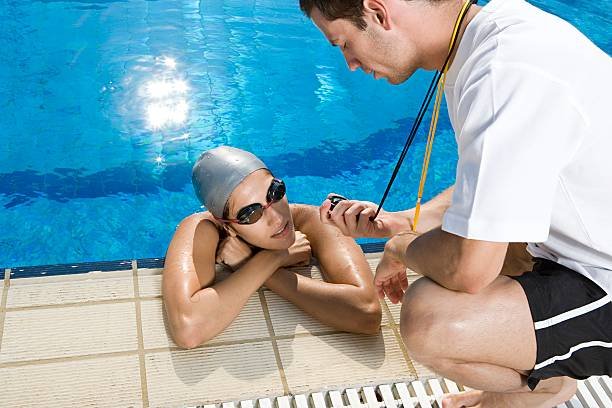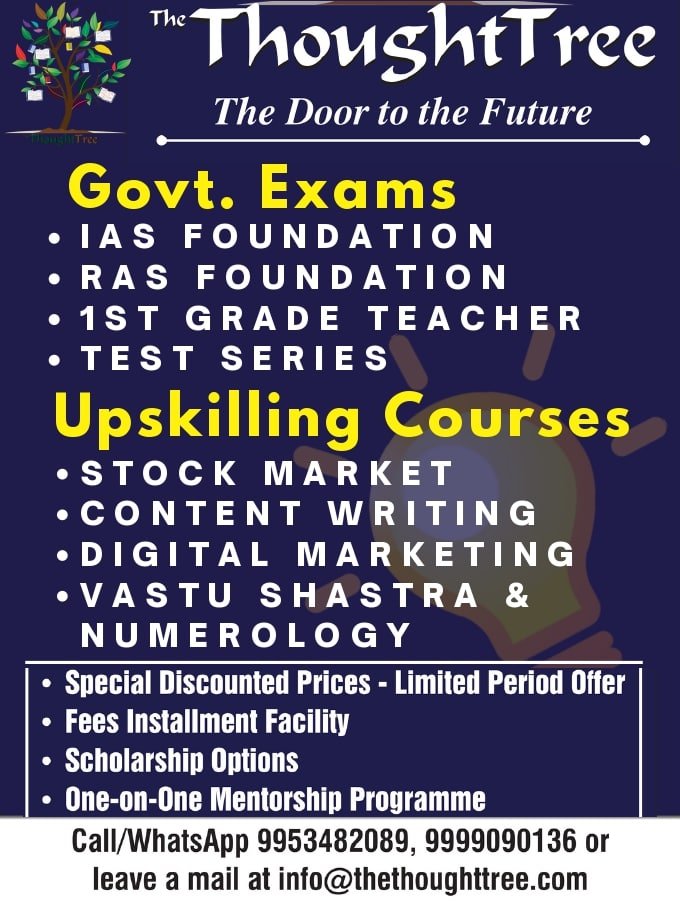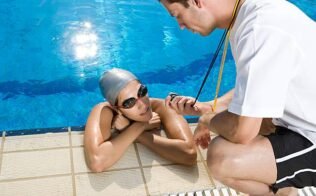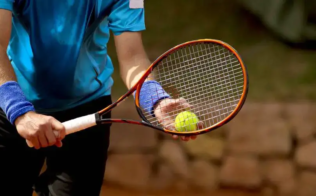The world of triathlon is an exhilarating pursuit of endurance, combining three of the most physically demanding disciplines in consecutive order: swimming, cycling, and running. Each discipline on its own is challenging in and of itself. But together, they’re a dynamic endeavor that calls athletes to push beyond their physical and mental limits.
Whether an athlete is a novice just dipping their toes in the water or an elite competitor striving to qualify for the world stage, many triathletes find themselves seeking professional guidance. This is where a triathlon coach steps in; a guide who knows the intricacies of multisport training and how to help athletes thrive amid the challenges.
The surge in triathlon’s popularity over recent years has highlighted the need for specialized coaches in the endurance space. Triathlon, once a niche endurance event, has grown by leaps and bounds and is now celebrated across various countries with more participants joining every year.
With this growth, an avenue has opened for aspiring endurance coaches to carve out a lucrative business in triathlon coaching, tailored to meet the needs of this diverse athletic community. If you’ve ever contemplated delving into the world of triathlon coaching, now might be the golden era to do so. Dive in as we unravel the path to positioning yourself as the go-to expert in triathlon coaching.

Earn Your Credentials as a Triathlon Coach
Just as a triathlon tests an athlete’s proficiency in three disciplines, carving a niche as a trusted triathlon coach requires proving your mettle through recognized certifications and credentials. Earning these certifications not only grants you the knowledge and tools to train athletes effectively, but they also serve as a testament to your commitment and expertise in the field. Here’s a breakdown of the primary certifications available and what each brings to the table.
USA Triathlon (USAT) Level I Coach Certification
As the governing body for triathlon in the US, obtaining a certification from USAT is a significant first step for coaches in America. The Level I certification provides foundational knowledge about the sport, from training techniques to nutrition.
Being an entry-level certification, while it lays a solid base, it doesn’t delve deeply into advanced coaching techniques. Coaches might need to seek further education to address the needs of elite athletes.
Must Read: 2023 Style Essentials: 5 Items
Ironman University Certification
Given that Ironman is one of the most recognized names in the world of triathlon, this certification can have notable prestige. The course covers race-specific training, which can be beneficial for those targeting long-distance races.
The potential drawback is that it focuses mainly on helping you develop skills as an Ironman coach with expertise in long-course triathlon training, so it might be less comprehensive for coaches looking to train athletes for shorter races.
TrainingPeaks Level 2 Coach Certification
This certification allows coaches to fully harness the potential of the TrainingPeaks software, a popular tool among triathletes. It delves into the intricacies of workout planning and performance data analytics.
The focus here is more on using the software rather than coaching strategies, which is a potential downside to beginner-level coaches. Coaches would need supplementary certifications for holistic training techniques.
International Triathlon Coaching Association (ITCA)
The ITCA offers a more global perspective on triathlon coaching, making it valuable for those who wish to cater to an international clientele. It covers a broad spectrum of triathlon training from sprints to Ironman distances.
While comprehensive, it might not offer deep specialization into any single race distance. However, for international coaches, it’s highly recommended to pursue an ITCA certification.
While each certification has its unique strengths, aspiring triathlon coaches should consider their personal coaching goals and the specific needs of their target athlete clientele. It might be worthwhile to pursue multiple certifications over time, allowing a broader skill set and an enhanced ability to cater to various athlete requirements.
Connect with New Athletes
Triathlon is as much a community as it is a sport. The tightly-knit connections between athletes, coaches, and enthusiasts create a plethora of opportunities to foster relationships. As a coach, bridging the gap between your services and the athletes in need of them requires strategic networking. Let’s dive into some potent ways to make these connections.
Attend Races and Triathlon Events
By being present at local races, clinics, and triathlon events, you’re positioning yourself amidst the action. Athletes, especially those new to the sport, often seek guidance post-race on areas of improvement. Consider setting up a booth or stall, offering quick race-day analysis or tips. Even without a formal presence, simply networking, wearing branded apparel, or distributing business cards can create valuable connections.
Leverage Online Networks
Take advantage of online platforms the Coach Match Program made available for coaches and athletes at BetterTriathlete.com. This platform provides a unique opportunity to connect with athletes actively seeking coaching services. By registering as a coach, you can tap into a pool of motivated triathletes. Ensure your profile stands out by highlighting your certifications, showcasing testimonials, and updating you with recent success stories. Engage actively by answering queries, offering free resources, or hosting webinars.
Local Triathlon Clubs and Groups
Local triathlon clubs or training groups are brimming with athletes of all levels, many of whom might be in search of specialized coaching to enhance their performance. Offer to host a session or workshop for the club, providing value and showcasing your expertise. Forming partnerships with club leaders or offering group discounts can also be effective.
Engage on Social Media
Digital Footprint: Platforms like Instagram, Facebook, or Strava are where many athletes share their journeys, making them ripe grounds for engagement. Share valuable content like training tips, athlete transformations, or race analyses. Engage with athletes by commenting, sharing, or even hosting challenges. Social media ads targeting triathlon enthusiasts can also amplify your reach.
Also Read: WHAT ARE SECURITIES IN STOCK MARKET?
Offer Free Workshops or Webinars
By hosting free sessions, you not only provide value but also showcase your coaching style, creating a tangible experience for potential clients. Ensure these sessions address common pain points or areas of interest. Promote them aggressively on various platforms and collect contact details for follow-up.
Connecting with new athletes requires a mix of offline and online strategies, fueled by genuine engagement and the desire to add value. By positioning yourself where the athletes are and demonstrating your expertise, you cultivate trust and grow your clientele.
Position Your Triathlon Coaching Brand
In the sprawling endurance landscape, positioning your triathlon coaching brand is akin to setting the right pace during a race: find the sweet spot, and you’ll be ahead of the competition. A well-defined brand speaks volumes, drawing athletes to your stable and setting you apart as a specialized subject matter expert. Here’s how you can angle your brand to cater to various triathlon segments:
Beginner Athletes – Embracing Newbies
These are individuals new to the sport, often seeking guidance on fundamentals, foundational training, and perhaps even overcoming initial fears (like open water swimming). Position your brand as a nurturing, educational, and supportive hub. Use approachable language, relatable success stories, and a strong emphasis on foundational techniques. Coaching beginner athletes often implies larger group sessions, clinics, or workshops. While individual charges might be lower, volume can compensate.
Middle-Distance Athletes – Guiding the Experienced Novices
These athletes have completed a triathlon or two and are looking to optimize their performance for standard or half-Ironman distances. They need tailored training plans, technique refinement, and strategies for race-day success. Showcase success stories of athletes who’ve seen noticeable improvements under your guidance. Highlight your expertise in fine-tuning and individualized training plans. Experienced novices often seek a mix of group sessions and personalized coaching. They’re willing to invest more than beginners for specialized knowledge.

Elite and Professional Athletes – Mastering the Pinnacle
These are top-tier competitors aiming for podium finishes, personal bests, and perhaps even qualification for world championship events. They require high-level strategies, data analytics, and often mental coaching. Your brand needs to echo excellence. Showcase any elite athletes you’ve coached, your highest level of certifications, advanced training methodologies, and actual tools you employ. The stakes are high at this level. While the clientele base might be smaller, you can command premium prices for your specialized services, reflecting the intricate, high-stakes nature of elite coaching.
Read: Revolutionizing the Workplace: The Impact of Cutting-Edge Business Software
The key to effective brand positioning is understanding and empathizing with your target audience’s needs and aspirations. Remember, the more specialized and tailored your coaching services, the higher the value perception, allowing you to charge accordingly. By positioning yourself strategically in the triathlon coaching spectrum, you don’t just find your niche; you excel in it.






[…] Must Read: How to Build a Business as a Triathlon Coach […]